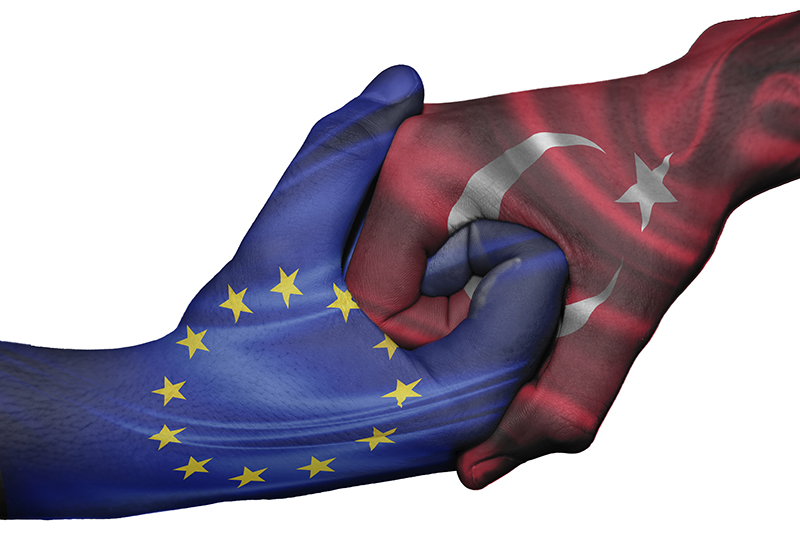Having gained the support of Germany through a new National Action Plan for EU Accession, Turkey is making a renewed drive to join the Union following its breakdown in European relations

After more than two years of stagnation in the turbulent ties between Turkey and the European Union, 2015 has been greeted with renewed hope that serious talks over Turkey’s EU accession can finally be revived.
A series of positive developments in Turkey-EU relations over the last few months have fuelled anticipation that the coming year could provide a historic turning point in Turkey’s bid to become an EU member state in the future.
The sway in sentiment follows a period when Turkey’s relationship with Europe hit an all time low, from Turkey’s refusal to talk to Cypriot authorities during Cyprus’ EU presidency in 2012 (emanating from the breakaway ethnic Turkish administration on the island) to a rise in concerns about freedom of speech and democracy over the government’s crackdown on mass street protests in 2013 as well as a major corruption scandal last January. Anti demonstration measures resulted in a full blown diplomatic row with Germany, leading to Turkey’s then EU Minister and Chief Negotiator Egemen Bağış to comment, "Turkey doesn't need the EU.”
The appointment of a new EU Minister in August 2014 however has seen the tide slowly start to change. Volkan Bozkir, who also takes over as Chief Negotiator with the Union, revealed the National Action Plan for EU Accession in September. The plan – a road map of Turkey's political reforms and socio-economic transformation within the context of the EU accession process – has been widely applauded as an indicator of the country’s commitment towards meeting the necessary criteria for membership.
Since his appointment Bozkir has also been to Luxembourg, Germany and Sweden in an effort to gather support for Turkey’s cause. In November, Luxemburg’s Deputy Prime Minister said Turkey's accession issues would be a priority during Luxembourg's EU presidency in 2015. Meanwhile, on Bozkir’s visit to Berlin back in October, Turkey and Germany agreed that reviving accession talks is in the interest of both countries.
Germany’s support in particular is a major breakthrough. This is especially so considering the country’s political and economic clout in Europe and because of Chancellor Angela Merkel’s previous opposition to Turkey’s EU ambitions. UK Prime Minister David Cameron also reiterated his backing for the mainly Muslim country on his visit to Ankara in December.
Turkey, which has been one the world’s fastest growing countries in the last few years and now boasts Europe’s sixth largest economy, will be hoping to continue the positive momentum gained in its EU drive throughout 2015. Talking to The Worldfolio, Ambassador of Turkey to the EU, Selim Yenel, says that the country is now doing everything it can to make sure it stands the best possible chance of someday joining the Union.
“After a rather rough relationship between Turkey and the EU during the last few years, our main responsibility is to make sure that we make progress. My job is to revive the dialogue, especially given the very poor communication of recent years. We are aligning to EU legislation for the period 2015 to 2019, a clear indication of Turkey’s commitment to continue with the reforms. It is impossible to predict the future and we can’t say for sure if Turkey will be a full member of the EU, but I believe it is in both our interests to be as close partners as possible.”
By Aled Bryon, The Worldfolio staff writer.
0 COMMENTS